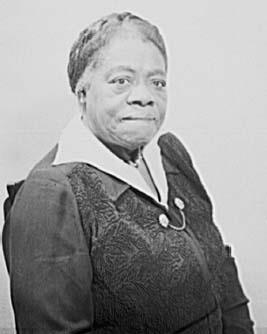EducationHistorically Black Colleges and Universities |
What school was founded by Mary McLeod Bethune? |
Mary McLeod Bethune (1875–1955) became founder and president of Daytona Normal and Industrial Institute in Daytona Beach, Florida, in 1904. In 1923 the school merged with Methodist-supported Cookman Institute in Jacksonville, which supported Bethune’s desire to maintain a college. In 1929 the institution changed its name to become Bethune-Cookman College (now University) and retained Bethune as its president. Born in Sumter County, near Mayesville, South Carolina, she was the fifteenth of seventeen children. She attended a rural Presbyterian mission school in the area and came under the influence of Emma Jane Wilson, a pioneering black teacher. She later attended Scotia Seminary (now Barber-Scotia College), a Presbyterian school in North Carolina. After graduation she enrolled in the Bible Institute for Home and Foreign Missions (now Moody Bible Institute) in Chicago where she prepared to enter foreign missions and become an African missionary. The Presbyterian Church, however, did not place black missionaries in Africa. Bethune went on to teach at the Presbyterian-supported Haines Institute in Augusta. There she came under the influence of Lucy Craft Laney, the school’s founder and principal. In 1900 Bethune founded a Presbyterian school in Palatka, Florida, and then established an independent school. On October 3, 1904, in a sparsely furnished rented house, she founded Daytona Educational and Industrial Institute. Financial support from the Methodist church helped Bethune with some of the school’s financial problems. In 1926 she accepted a full-time federal position in Washington, D.C., and the school suffered as she continued to divide her attention between the two positions. After a life-threatening illness, she resigned the presidency in 1942 but worked her way back into that office until 1947. Bethune was well known for her work in the black women’s club movement. In 1920 she founded and became president of the Southeastern Association of Colored Women. From 1924 to 1928 she served as president of the National Association of Colored Women, an organization of some ten thousand women. On December 5, 1935, she founded the National Council of Negro Women and later pushed the organization into extensive lobbying in Washington. D.C. Under her leadership the organization sponsored the SS Harriet Tubman in 1944, the first liberty ship to honor a black woman, and fought for the acceptance of black women in the armed forces. Bethune wrote for several journals as well as a column for the Pittsburgh Courier and the Chicago Defender. One of her best-known works is her “Last Will and Testament,” which serves as an inspiration for black people; it was subsequently published in a number of sources. Bethune was highly honored for her activities as an educator, clubwoman, and orator.

Mary McLeod Bethune was founder and president of Bethune-Cookman University. She was also a president of the Southeastern Association of Colored Women and of the National Association of Colored Women, and founded the National Council of Negro Women.
